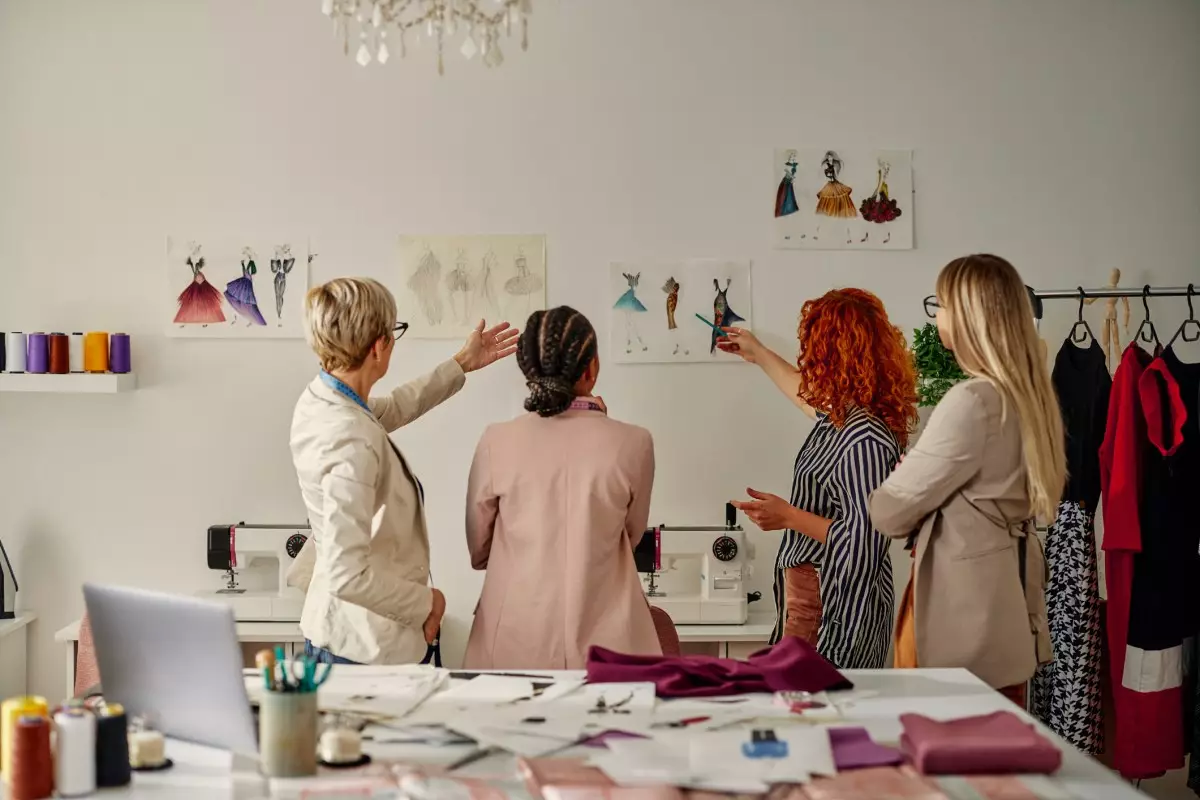The fashion industry, known for its ephemeral nature, is increasingly overwhelmed by the breakneck speed of change. As retailers strive to keep their collections fresh and appealing, they introduce new styles more frequently than ever before. This rapid evolution, especially prominent in fast-fashion brands like Shein, H&M, and Zara, has necessitated a transformation in the design process. Enter the world of artificial intelligence, which is set to revolutionize how fashion designers conceptualize and produce their work.
One of the most innovative solutions in this ever-changing landscape is Raspberry AI, a startup that harnesses the power of generative AI to facilitate quicker product development. Founded by Cheryl Liu—whose background spans private equity analysis and experience at major companies including Amazon and DoorDash—Raspberry AI seeks to address the growing demands of the fashion industry. Liu recognized a unique opportunity in the burgeoning capabilities of AI image models, such as OpenAI’s DALL-E, which emerged in late 2022. Instead of traditional and often cumbersome design methods, designers can now use a text-to-image platform to visualize their concepts almost instantaneously.
Historically, fashion designers faced significant barriers when it came to realizing their visions. To create tangible representations of their ideas, they often had to order physical samples—an exercise that could take weeks or months. Alternatively, they relied on conventional computer-aided design tools, which, while useful, lacked the flexibility to enable rapid iteration. Raspberry AI aims to eliminate these bottlenecks by allowing designers to produce photo-realistic images directly from their sketches, bringing potential products to life minutes after ideation.
This innovative approach is particularly advantageous when it comes to exploring multiple iterations of a single design. Liu mentions that brands would never order fifty sample iterations for a single product due to cost and time implications. However, with Raspberry AI’s platform, designers can generate fifty visual variations of a design, exploring various materials and prints without the associated logistical headache.
The appeal of Raspberry AI is evident: within a short time frame, the startup has successfully attracted an impressive clientele, boasting major names like Under Armour and MCM Worldwide among its 70 customers. This rapid uptake has not gone unnoticed by investors; the company recently secured a $24 million Series A round led by Andreessen Horowitz, following a previously raised $4.5 million seed round. The enthusiasm from investors reflects the growing recognition that AI technology can streamline the fashion manufacturing process. Bryan Kim, a partner at Andreessen Horowitz, highlighted the strong foundation that Liu brings to the table, as well as the popularity of Raspberry AI among significant brands.
Despite the numerous competitors in the generative AI space, such as Midjourney and Adobe Firefly, Raspberry AI distinguishes itself through its specific focus on the fashion industry’s needs. Liu pointed out that a key factor in professional designers’ choice of Raspberry over alternatives is its understanding of industry-specific terminology. For instance, when a designer references terms like “fuzzy sweater,” Raspberry’s tool interprets them accurately, a feature that generic AI models might overlook.
The uniqueness of this specialization is crucial in providing tangible value to designers who depend on precise communication to realize their visions. In addition to high-quality image generation from detailed prompts, Raspberry incorporates the ability to convert sketches into digital renderings, significantly enhancing the workflow of fashion professionals.
As Raspberry AI continues to gain traction, Liu plans to allocate the recent funding towards enhancing the company’s engineering, sales, and marketing capabilities, with ambitions to diversify into other design landscapes such as home decor and cosmetics. The integration of AI in these areas could herald another wave of innovation, ultimately reshaping not only fashion design but also broader creative industries.
As fashion embraces technology at an unprecedented scale, startups like Raspberry AI are leading the charge, proving that the intersection of creativity and technology promises a future where the design process is as dynamic as the industry it serves. Designers no longer need to be limited by traditional constraints; instead, they can leverage AI to push the boundaries of what is possible, setting the stage for a new era in fashion design.

